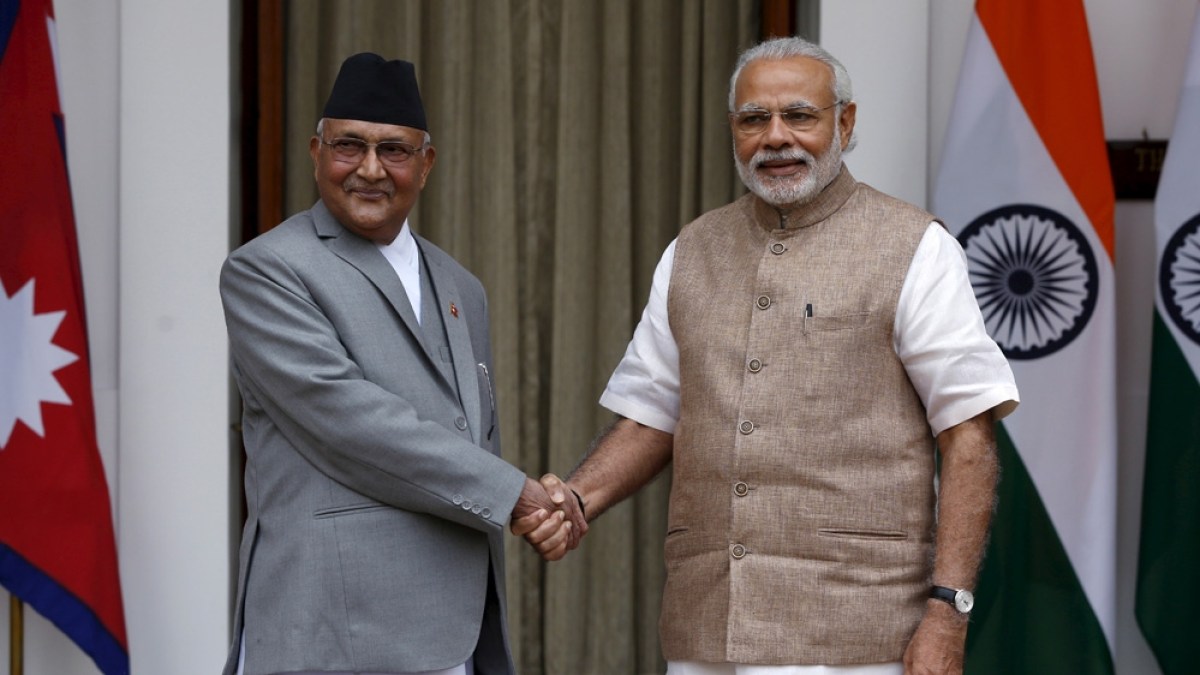Ophiophagus Hannah
BANNED
![Khadga Prasad Oli has invited Narendra Modi to Nepal, the Indian prime minister last visited in 2018 [File: Adnan Abidi/Reuters] Khadga Prasad Oli has invited Narendra Modi to Nepal, the Indian prime minister last visited in 2018 [File: Adnan Abidi/Reuters]](/proxy.php?image=https%3A%2F%2Fwww.aljazeera.com%2Fmritems%2Fimagecache%2Fmbdxxlarge%2Fmritems%2FImages%2F2019%2F9%2F10%2F00f6ae4f6f8f4cf59b2d39ad46893281_18.jpg&hash=ed17fb478517b78baabe4d0c1a12e21f)
India, Nepal open South Asia's first cross-border oil pipeline
Pipeline is latest step to mending ties between neighbours after protests and a border closure in 2015.
Khadga Prasad Oli has invited Narendra Modi to Nepal, the Indian prime minister last visited in 2018 [File: Adnan Abidi/Reuters]
more on India
- Kashmir under lockdown: All the latest updatestoday
- Kashmir unrest could lead Pakistan, India to 'accidental war'today
- 'Electric shocks, beatings': Kashmiris allege abuse by India armytoday
- India: Will southwest Monsoon withdraw on time?today
The leaders of India and Nepal have inaugurated South Asia's first cross-country oil pipeline, allowing the Himalayan nation of Nepal to receive an uninterrupted supply of oil from its large southern neighbour.
Indian Prime Minister Narendra Modi and his Nepalese counterpart, Khadga Prasad Oli, hit the switch simultaneously on Tuesday from their offices in New Delhi and Kathmandu to open the 69-kilometre pipeline, which will bring gasoline, diesel fuel and kerosene across the border to Nepal.
The two leaders hailed the pipeline as another step in the friendship between the two countries.
"This is the first cross-border petroleum pipeline in South Asia, which has also been completed in a record time," Modi said, adding that it was finished in almost half the expected time.
Modi said that with this pipeline two million metric tonnes of clean petroleum products will be available to the people of Nepal at very affordable rates.
Oli announced on Tuesday that the government would reduce the price of gasoline and diesel by two rupees ($0.023).
"It will not only save time, reduce cost, lessen road traffic and reduce air pollution in transporting petroleum products from India to Nepal, but will also open avenues in Nepal for expanding similar pipelines across the country," Oli said.
Mending ties
Tanker trucks have been used to transport the oil products from storage facilities in India to Nepal through crowded border points. The trucks are believed to be one of the main reasons for clogging up the already narrow border checkpoints between Nepal and India.
Nepal imports all of its oil products from India. The state-owned India Oil Corporation sells the products to Nepal Oil Corporation, also government-owned.
Disturbances in the border area have in the past led to disruptions of the supply.
Ethnic protests in southern Nepal in 2015 against the country's new constitution led to the closure of the border for months, leading to severe shortages of oil in Nepal.
Oil tankers were not allowed to pass through the border points and highways in southern Nepal were blocked by protesters demanding changes in the constitution.
People were forced to travel on bus roofs and cut down trees to cook food, and schools had to close.

Relations between India and Nepal hit a low point in 2015 with violent protests and a debilitating border closure [File: Navesh Chitrakar/Reuters]
It was also at the time when Nepal was just recovering from a devastating earthquake that damaged an estimated one million structures and people were trying to rebuild their homes.
The protest and the closure of the border by the Madhesi ethnic group also put a strain on relations between Nepal and India, which supported the ethnic group.
The protests fizzled out after a few months, but it took years for the two countries to mend their ties.
Modi and Oli have made efforts to strengthen ties between the two countries. Oli invited Modi to visit Nepal during Tuesday's ceremony, and Modi accepted. The Indian prime minister last visited Nepal in 2018.
"This will, without any doubt, enhance interconnectedness and interdependence between our two countries," Oli said. "It is one of the best examples of connectivity in terms of trade and transit and infrastructure."

India, Nepal open South Asia’s first cross-border oil pipeline
Pipeline is latest step to mending ties between neighbours after protests and a border closure in 2015.
Last edited:
